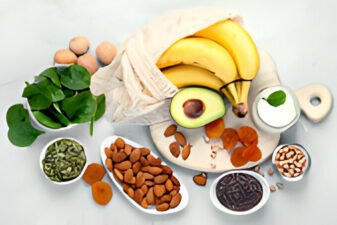Question: Is sugar safe to eat when we’re dieting? Answer: Yes.
There’s no doubt that sugar has a bad reputation, especially for anyone trying to lose weight. But dieters often overreact and stop eating sugar altogether, which can be counter-productive. Anyway, here is my 2 cents about sugar, nutrition and weight control.
Energy Value
Sugar is a concentrated source of energy (4 calories per gram). Which means that sugary foods are great for anyone who needs a short-term energy boost, but not ideal if weight control is a priority.
Nutritional Value
Sugar contains no real nutrition. If we never had another teaspoon of dietary sugar in our life, our nutritional health would not be affected in the slightest. So from a health viewpoint sugar is valueless.
Effect of Sugar on Blood Glucose Levels
Sugar is traditionally seen as a danger to blood-glucose levels. But this reputation isn’t really deserved. Table sugar (sucrose) has a glycemic index (GI) value of 60-65 (the same as canned green pea soup!), which means it’s a moderate not a high GI food. In fact, contrary to popular opinion, most high-sugar foods do not raise blood-glucose levels any more than most complex starchy foods like bread.
Dietary Guidelines
The US Dept of Agriculture recommends that sugar makes up no more than about 8 percent of the total calories in the average diet.
Sugar Boosts Diet-Compliance
Clinical studies show that sugar-free diets are more difficult to follow in the medium-long term. In some dieters, these sugar-free eating plans can trigger cravings for sweet foods and disordered eating. Being able to enjoy occasional sugary foods is an important reward-element in most successful weight loss plans, such as Weight Watchers and Jenny Craig.
Guidelines For Weight Management
(1) We need to assess how important sugar is to us in our daily diet. If we eat a lot, then clearly we should reduce our intake to reasonable levels. We can do this by switching to foods containing natural sweetness, like fresh fruit. (No processed sugary foods can compare with a fresh pineapple or a ripe banana.) In addition, we can and should make a point of checking food labels and choosing brands with lower sugar content.
(2) The use of artificial sweeteners, like Splenda, Sweet ‘N’ Low, or Canderel, is a matter of personal taste. A question of balancing chemical factors against the reduction in calories. Also, it’s worth knowing that both nutritive and non-nutritive sweeteners can be 200 times sweeter than sugar – not ideal if you wish to reduce your “sweet tooth”.
(3) Following a sugar-free diet is not an easy option. Initial sugar withdrawal symptoms are not pleasant, and (in my experience, at least) weight loss success with such diets is infrequent.
Note About Aspartame
It’s true that aspartame is still a controversial sweetener. But unless we are experts in food biochemistry, we have no choice but to rely on those who are.
The US Food and Drug Administration (FDA) (Jan 2005) continues to state quite unambigously that aspartame is safe. The FDA states:
“Despite the overwhelming documentation of aspartame’s safety, unfounded allegations that aspartame is associated with a myriad of ailments continue to be spread via the Internet and the media by a few individuals who have no documented scientific or medical expertise.”
In addition, the FDA states:
“In an effort to alleviate myths surrounding the sweetener, Health Canada has recently re-released a statement via their Website supporting the safety and innocuousness of aspartame.”
For the full FDA text, visit: Aspartame
I guess the bottom line is this: anyone who feels strongly that aspartame is unsafe (despite what the FDA says), should avoid it. See also Fibromyalgia Diet Guide and Aspartame, MSG and Fibromyalgia.
Carbohydrates and Glycemic Index (GI)
Everything you need to know about healthy carbohydrate, how much to eat and how the Glycemic Index helps to maintain good health and weight.
GI Diet Method
How the Body Uses Its Energy Sources
Guide to Carbohydrates
How Carbs Are Digested
How Carbohydrate Affects Blood Sugar
How Carbohydrate Affects Insulin
Health Risks of Excessive Insulin
Low Carb Eating Plans
Guide to Glycemic Index (GI)
More Details About GI
How GI is Measured
What Determines GI Value of Carb-Rich Foods
Guide to Glycemic Load
GI Values of Meals
How to Reduce GI Value of Meals
Low GI Foods
How Much Carbohydrate Do We Need in Our Diet
Guide to Carbohydrate in Our Diet
Which is Best: Low Carb or Low GI Diet
Health Benefits of Low GI Diets










